Gia Rodriguez pivots her luxury brand from selling handbags to face masks
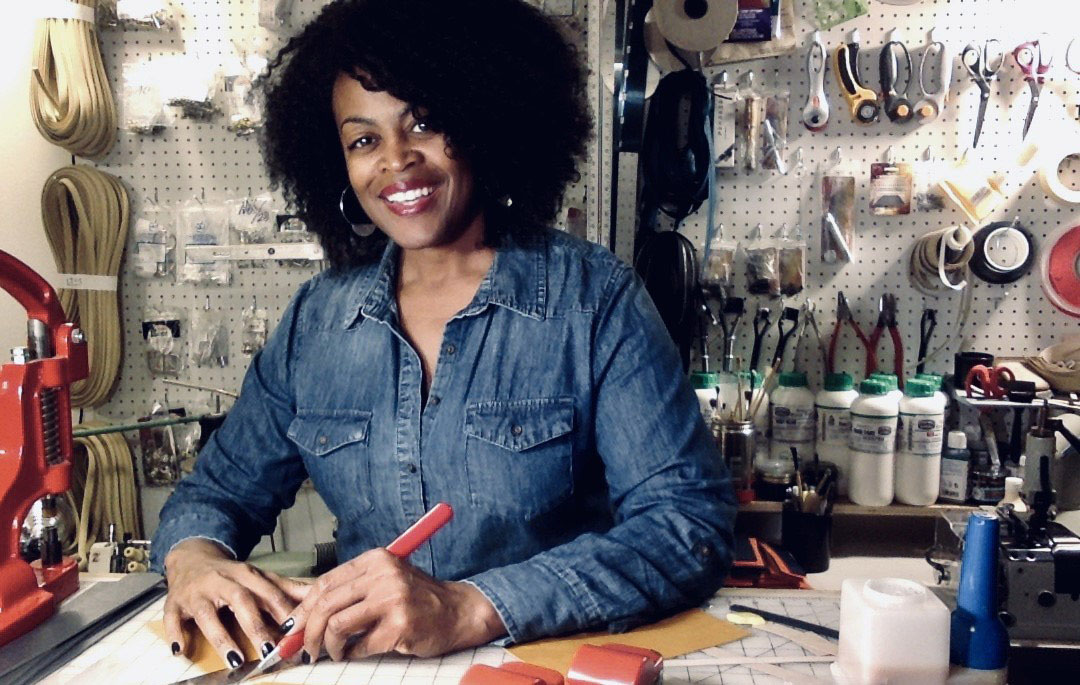
In the second installment of our COVID-19 Frontline series, Gia Rodriguez shares with us how being a caregiver to her father sparked the idea for her company to pivot from selling luxurious leather goods to face masks.
The Gia Rodriguez Collection sprang from Gia’s need for a versatile but attractive handbag to carry her laptop along with her toiletries. So, with her love of fashion, design and a random bag of leather, she created one.
“At the time I was traveling a lot and it was super easy to get everything in and out of it. Plus, it was stylish. I would always get compliments on it and it was a vibrant color, so it was something people didn’t see very often. That spurred the idea of starting the collection. The Hamilton tote is where it all began.”
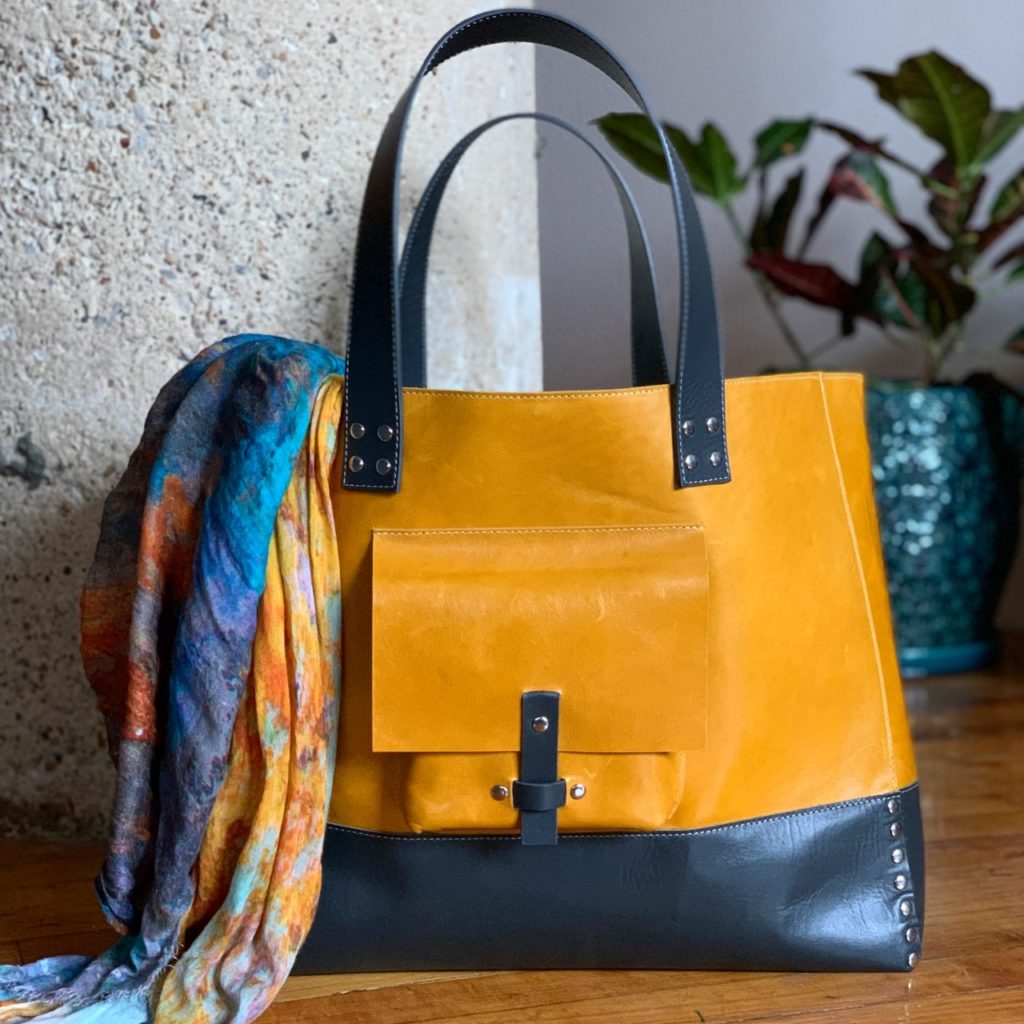
The Hamilton tote spawned other leather creations. The Gia Rodriguez Collection now includes overnight bags, backpacks, passport covers and more. Gia was in a good place, designing and manufacturing luxury promotional items and incentive gifts for upscale businesses.
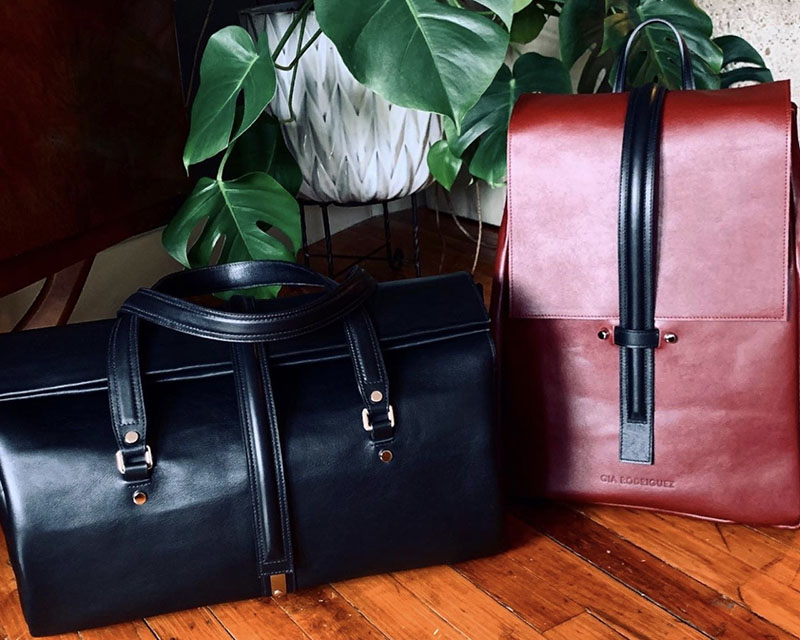
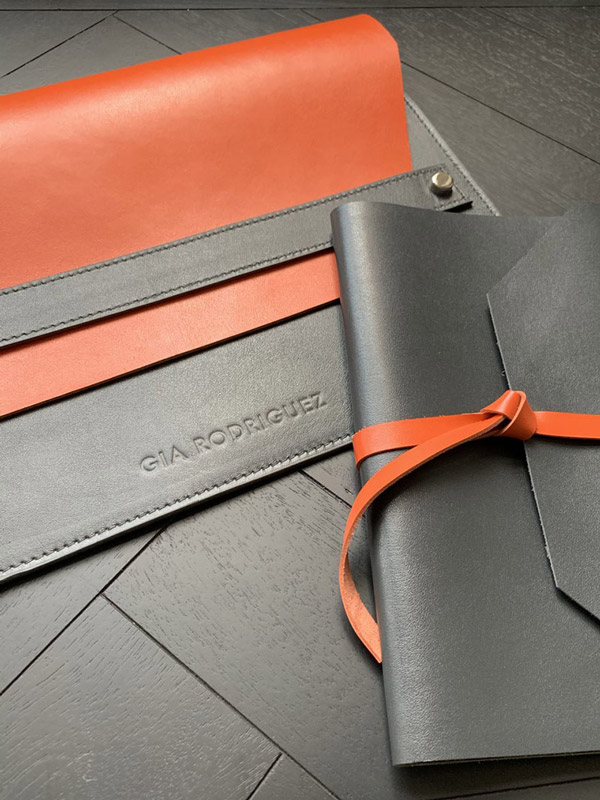
Then COVID-19 hit.
“A lot of my business is associated with large events and activities where companies want promotional items. Around February and early March there was all this discussion about events being cancelled and postponed. There was an uncertainty about what was going to happen and companies started pulling back. In a matter of weeks everything was on hold. “
With Gia’s main source of income in peril, she knew she had to figure out next steps. And she had to do it fast. As with many small businesses, Gia couldn’t handle a long-term shutdown. A visit to her father changed everything.
“I spent a fair amount of time in Houston with my dad who was experiencing some health issues. There were several caregivers besides myself and I realized we probably all should be wearing some sort of face coverings. Even though the CDC wasn’t recommending it at the time, intuitively, it made sense.
So, I started making a few masks for the folks that were in the house and I did a post about it. And randomly on the same day, the CDC made a recommendation to wear face masks. The moment I posted, I got all these inquiries.”
As the requests rolled in, it all started to make sense. Gia already had industrial sewing machines, fabric, elastic and shipping capabilities. Within the hour, she’d added masks to her inventory and customers were able to order online. Gia priced the masks at an amount she believed most people could afford. But, if a person reached out to her and couldn’t afford them for some reason, then she donated. She’s donated 10%-15% of the masks she’s made so far.
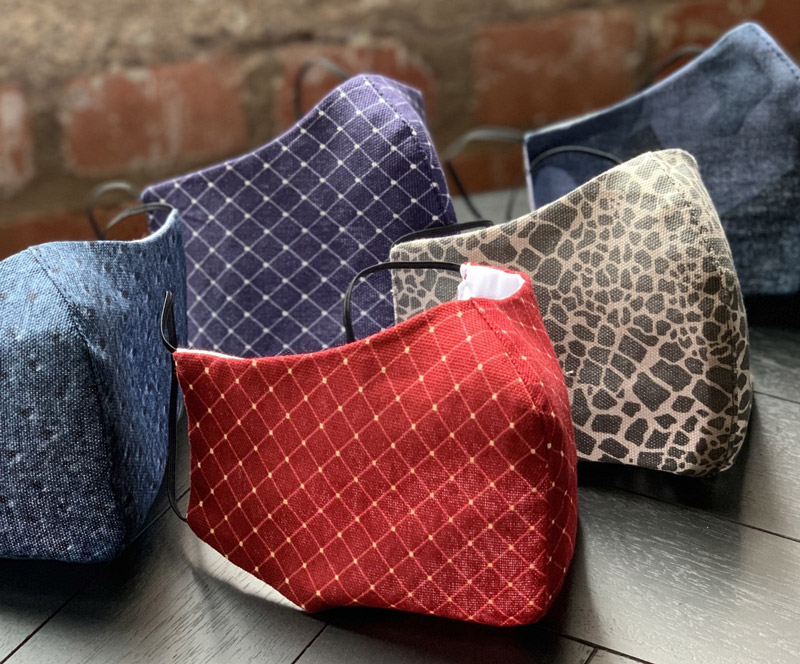
Making masks for a mask-hungry public was not a one-person job.
“Initially, I started with a couple of folks that would come and help in my studio. They were hourly employees that would help with ironing, some of the prep work, things like that. Eventually, it got to the point I had to get additional sewing capacity, so now I work with a sew contractor in the Dallas area and we both produce.”
Gia also employs cutters to cut the large amount of fabric pieces needed. One of her cutters has a huge table with robotic arms that can cut thousands of pieces quickly. Once the pieces arrive back at the studio, employees are tasked with sorting them by color and pattern, counting them, then separating them into bundles. Another team does the actual sewing. No more than four people are allowed in the studio at a time and work stations are set up to ensure proper social distancing.
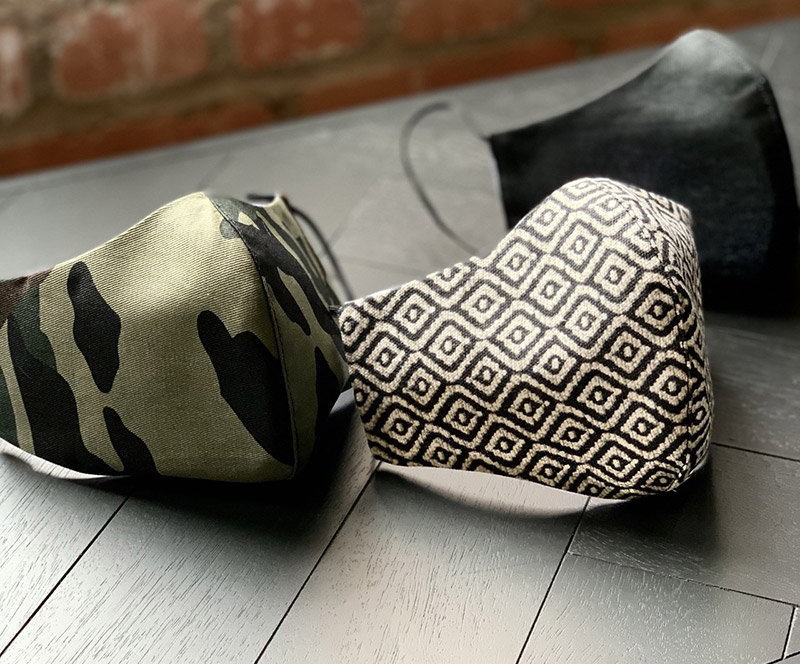
With the future so uncertain, Gia believes we’ll probably be wearing masks for some time, especially when traveling restrictions are lowered. So, she’ll be keeping masks in her inventory for the unforeseeable future.
Gia admits that the COVID-19 pandemic has helped her understand the importance of diversifying her business.
“I didn’t realize how overextended I was in the hospitality and event space. These industries are interconnected, so if any of them experiences a downturn, it has an adverse effect on my business. Its given me a different perspective on how I want to position my business for the future and making sure I’m considering a much broader industry play. The ability to quickly adapt, reconfigure and realign things was critical and having core skills in a number of different areas really came to my rescue.”
Written by: Tamara Devers
share this post: